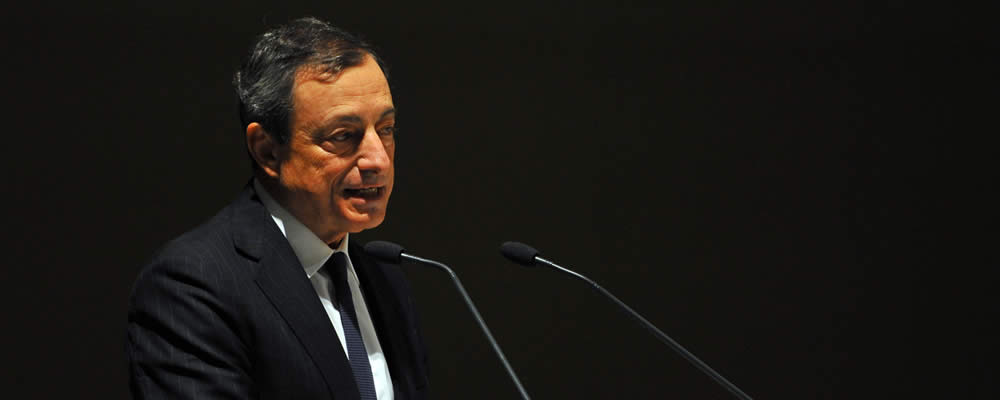The Euro Australian Dollar (EUR AUD) exchange rate tumbled from its best levels this morning as markets were disappointed by comments from European Central Bank (ECB) President Mario Draghi.
Speaking at a conference in Frankfurt, Draghi told those attending that the Bank still had no plans to reassess its current monetary policy and that its record low interest rates were likely to remain in place for the foreseeable future.
The claims came as a blow to EUR investors who had begun to speculate that the ECB may start to tighten monetary policy later in the year after Draghi claimed that the Eurozone was no longer at risk of deflation, while also removing a comment regarding the ECB using the full extent of its powers to raise inflation following the Bank’s March policy meeting.
The ECB has come under increased pressure to raise interest rates in recent months as Eurozone inflation nudged higher, eventually overtaking the central bank’s target rate of 2% in March.
However the ECB was unconvinced by the data as it suggested that the surging oil prices at the start of the year were propping up prices, something that appears to have been validated by the collapse in Germany’s inflation rate at the end of last month following the plummet in oil prices.
Reaffirming its stance, Draghi said that the Bank would need more signs that inflation was strengthening before it would consider altering its policy, stating;
‘We have not yet seen sufficient evidence to materially alter our assessment of the inflation outlook – which remains conditional on a very substantial degree of monetary accommodation. Hence a reassessment of the current monetary policy stance is not warranted at this stage.’
EUR AUD was also pressured by comments from ECB board member Peter Praet who also spoke in Frankfurt as he suggested that the central bank’s ultra-low interest rates would likely remain in place well past the end of the Bank’s quantitative easing programme, which is currently set to terminate in December.
Meanwhile, the Australian Dollar also suffered this morning as market risk appetite plummeted ahead of a meeting between US President Donald Trump and Chinese President Xi Jinping later this afternoon.
Trump has continually criticised China for flooding markets with cheap materials and goods which the US administration has blamed for a loss of US jobs.
While Trump has toned down his rhetoric in recent weeks and appears to be becoming more accommodating upon actually meeting other leaders (as he did with German Chancellor Angela Merkel after accusing Germany of manipulating its currency) investors still fear that the meeting could lead to a trade war between the two nations if talks break down.
Looking ahead, the EUR AUD exchange rate may tumble even further tomorrow following the release of Germany’s latest Industrial Production figures, with economists forecasting that output will plummet from 2.8% to 0.1% in February.
However this could be offset by the country’s Trade Balance as Germany’s trade surplus is predicted to rise from €14.8bn over the same period.
Meanwhile, the Australian Dollar may struggle to hold onto its gains overnight on Thursday as the domestic Construction Index is expected to show that building activity slowed in February.
Current Interbank Exchange Rates
At the time of writing the EUR AUD exchange rate was trending around 1.41 and the AUD EUR exchange rate was trending around 0.70.



